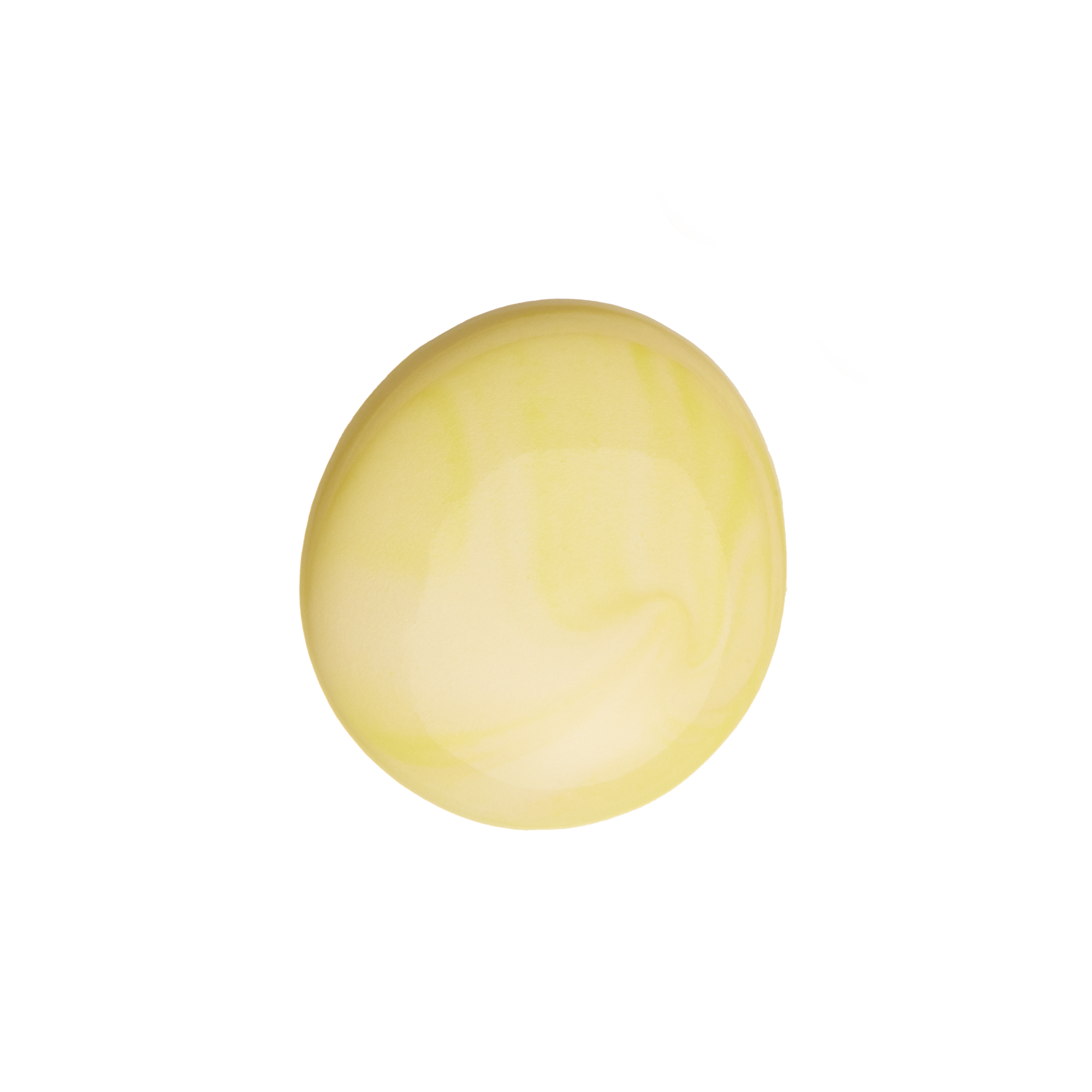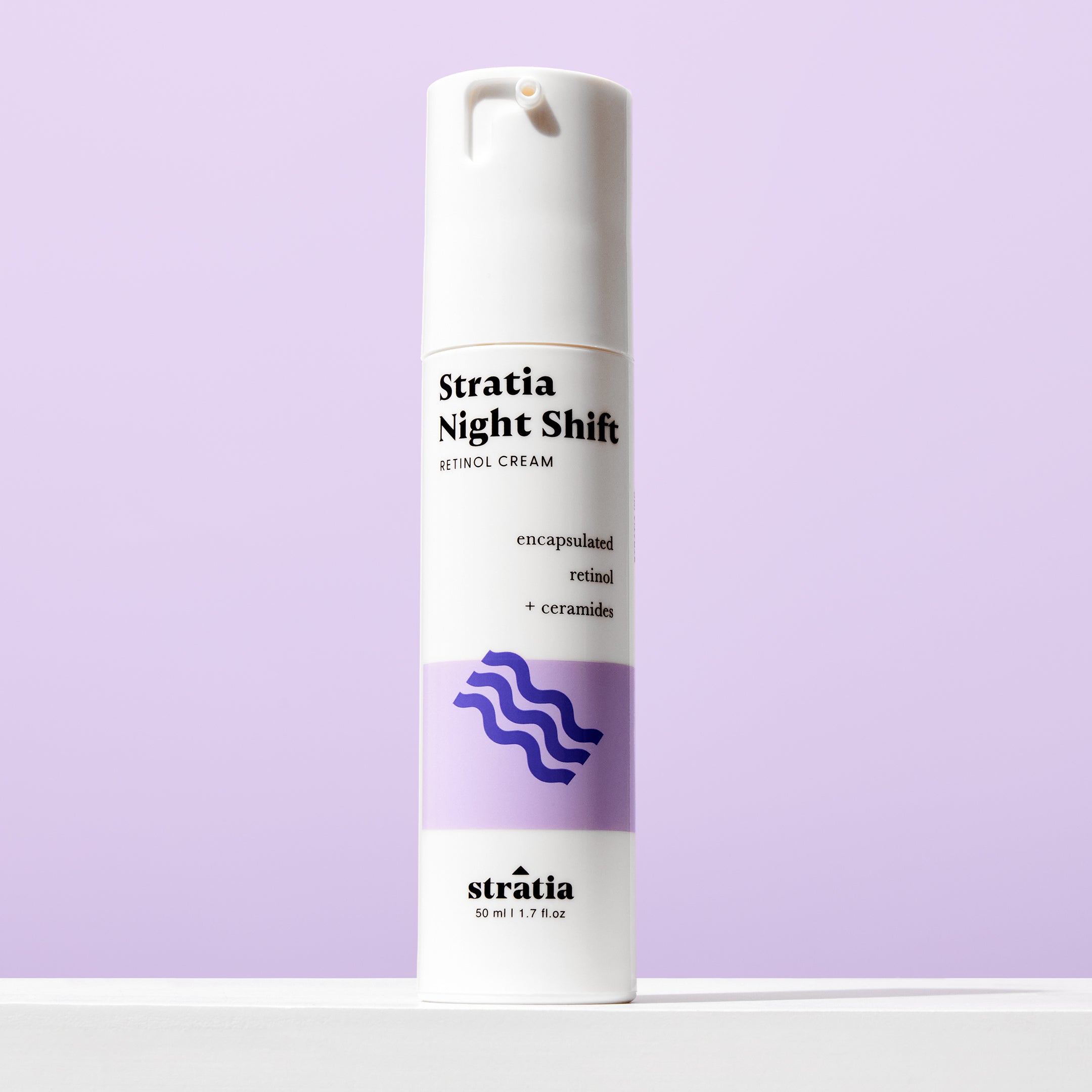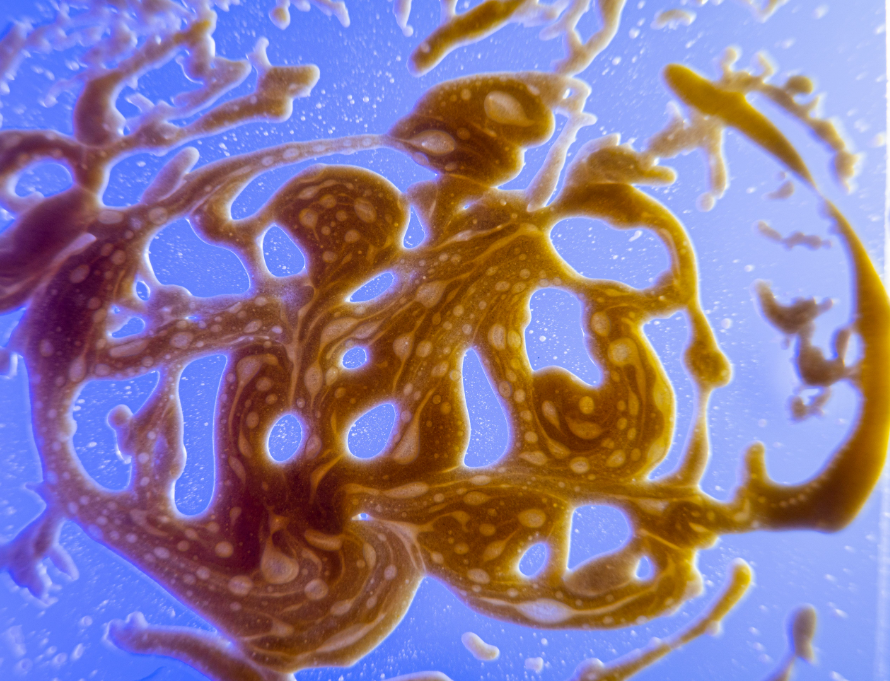Retinol is part of a class of molecules known as retinoids. The strongest and most bioavailable retinoid is retinoic acid, also known as tretinoin - it’s a prescription-only retinoid that’s used for its anti-aging properties as well as its anti-acne effects. It can also cause significant irritation, redness, and peeling. For those with more sensitive skin (or who want to skip the hassle of a prescription), retinol is a great choice.
When you apply retinol to your skin, your body converts it to retinaldehyde, then to retinoic acid. Once applied, it penetrates deeply to benefit your skin in a few different ways.
Your skin is made up of three layers: the thin, protective epidermis; the dermis providing structural integrity and nutrients to the epidermis; and the hypodermis, connecting the skin to the fat and muscle below.
The middle layer, the dermis, is most responsible for the visible signs of aging. It contains structural proteins like collagen and elastin, which keep skin bouncy, firm, and wrinkle-free. As we age and spend time in the sun, these proteins break down, which leads to wrinkles and sagging skin.
Retinol stimulates new collagen production in the dermis. It also protects your collagen from degrading, and helps remove broken elastin fibers. This overall increase of collagen and elastin density in your dermis means your skin looks and feels firmer, bouncier, and younger, and decreases the appearance of fine lines and wrinkles.
In the epidermis, retinol also increases cell turnover, helping to fade dark spots and improve skin texture. It increases glycosaminoglycan concentration, which means skin is better able to hold on to moisture, leading to plumper, more youthful-looking skin. It’s also been shown to thicken the epidermis, which naturally thins as we age.
While retinol is significantly less irritating than retinoic acid, it still can cause irritation. When introducing retinol to your skincare routine, be sure to start slowly and supplement with soothing and barrier-supporting products.
Sources:



